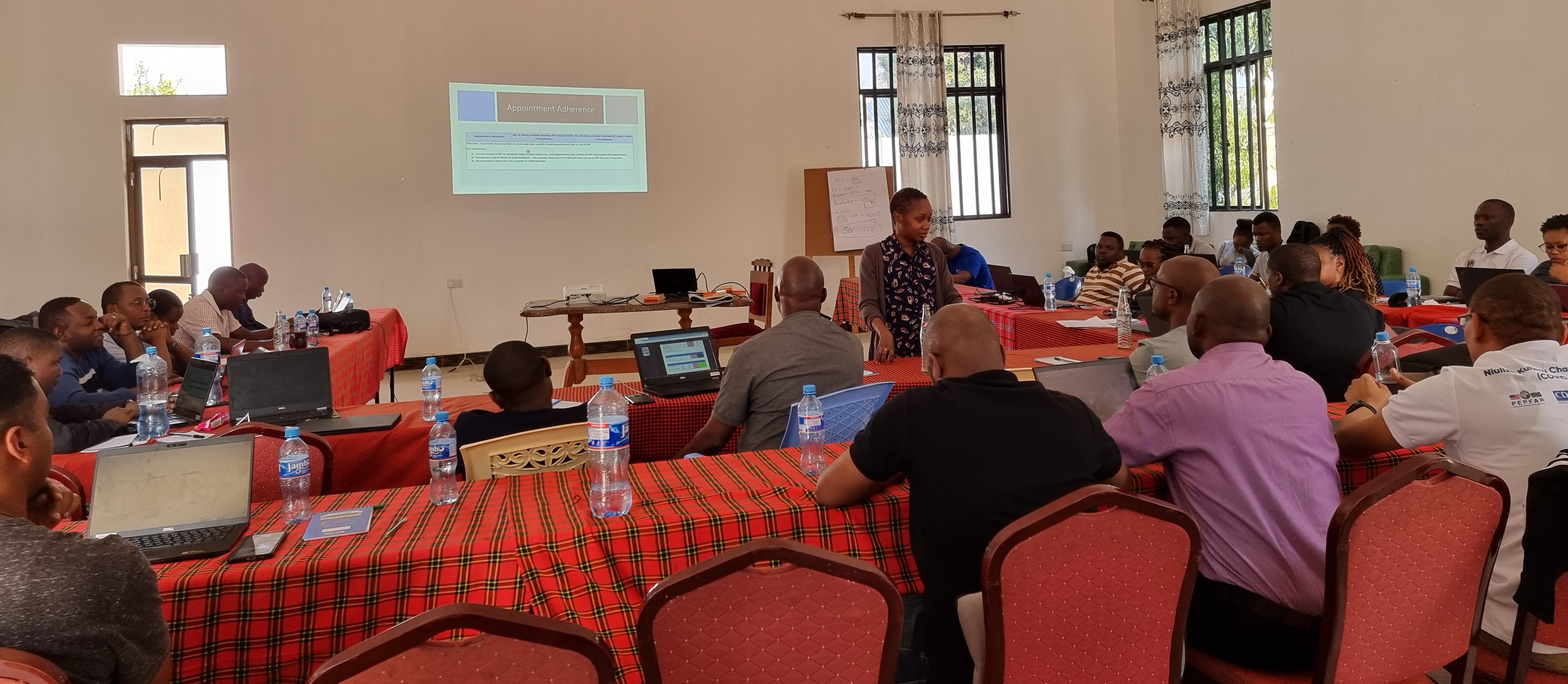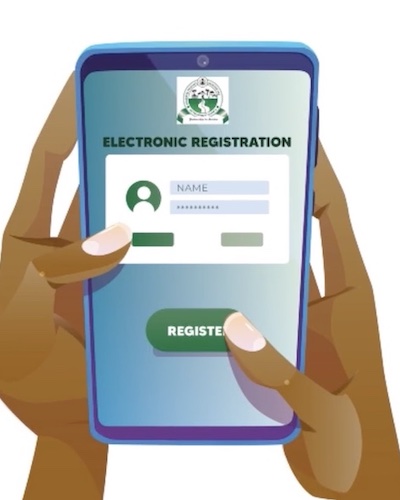August 31, 2021
HIV care and treatment has been improving globally, and incredible progress in reducing transmission has been made. But how do global health programs ensure that practitioners in remote areas are aware of the latest advances so that their patients can also enjoy the benefits of such advances? Tanzania offers an example on the way forward.
Tanzania has an estimated 1.7 million people living with HIV (PLHIV) as of 2019 according to UNAIDS. To assist this population, the Government of Tanzania has established a large network of care and treatment clinics to reach even its most rural populations of PLHIV. While the reach of services is extensive, rural locations still face hurdles in maintaining quality of care across facilities. Among the challenges are the associated costs and logistical difficulties in keeping providers up-to-date on new developments in treatment protocol, guidelines, and best practices.
Medical trainings typically require providers to travel to distant locations, sometimes for days at a time, which places additional strain on an already limited healthcare workforce back at the clinic. When a patient’s medical problems exceed a primary care provider’s knowledge, they are often referred to another provider at a higher level of care. The additional expense and hurdles such referrals impose on a patient can lead them to give up and opt out of care.
Introduction of Project ECHO
To address some of these challenges, Tanzania’s Ministry of Health, Community Development, Gender, Elders and Children (MOHCDGEC) supported the adoption of Project ECHO (Extension for Community Healthcare Outcomes), a healthcare initiative from the University of New Mexico School of Medicine.
Project ECHO is a telementoring model that uses a hub-and-spoke knowledge sharing approach in which expert teams lead virtual clinics, amplifying the capacity for providers to deliver best-in-practice care to underserved demographics. The model is an effective method to train non-specialists to provide high-quality care and manage complex medical cases.
In Tanzania, the Centers for Disease Control and Prevention (CDC) under the President’s Emergency Fund for AIDS Relief (PEPFAR) funded ICAP to pilot ECHO in 12 clinics (spokes) in three regions from a central location in the city of Dar es Salaam (hub) from November 2017 to September 2018. Following the pilot study, the CDC brought the University of Maryland, Baltimore (UMB) via Ciheb Tanzania on as an implementing partner to continue the HIV Clinical ECHO Clinic to expand it to all regions. In addition, UMB began assisting the national ECHO coordinator with coordination of all ECHO clinics to avoid duplication of efforts and unnecessary spending on equipment.
Expansion of HIV Clinical ECHO Clinic
Ciheb has expanded the HIV Clinical ECHO Clinic to include sites across all regions of Tanzania and increased the number of independently functioning hubs. This expansion was completed through two methods: first, by bringing in sites with no previous experience with ECHO, starting with those with the largest numbers of PLHIV being treated, and second, coordinating efforts of other ECHO clinic implementing partners in the country to avoid duplication of platforms and taking the HIV Clinical ECHO Clinic to those facilities.

Two maps showing the expansion of ECHO sites from 2018 to 2021.
As a result, HIV Clinical ECHO Clinic has expanded from one hub and 12 spokes in three regions to four hubs and almost 200 spokes in all 26 regions in Tanzania plus Zanzibar in less than three years. This rapid expansion required UMB to quickly set up processes to maintain quality, including the development of site assessment forms to evaluate infrastructure and participant readiness, technical assistance to address problems found in the assessments, development of materials to facilitate the maintenance of quality of ECHO sessions during expansion, installation of ECHO platforms, training of providers on the ECHO model, training of information technology (IT) specialists on how to use equipment, and ongoing technical assistance to facilities to address IT and implementation problems. As new hubs are established, UMB recruits local subject matter experts and IT specialists at those sites and trains them on the ECHO model.
Coordinating with Other Implementing Partners
Ciheb has also supported the MOHCDGEC in its central coordination for the national ECHO program. A key activity is facilitating monthly meetings and ongoing communication with all ECHO implementing partners in order to avoid duplicating efforts. Ciheb facilitated the development of the national ECHO framework to ensure standardization across all clinics. Ciheb also led the development of data entry standardized operating procedures with all other implementing partners.
While undertaking the rapid expansion of a high-quality HIV ECHO clinic, Ciheb continues to be flexible and address new needs. For example, a novel continuous quality improvement (CQI) component has been added to the clinic, which has allowed for the further dissemination of high-quality CQI practices. Ciheb also seeks the input of participants in developing the curriculum and using the ECHO platform for updates from the National AIDS Control Programme so that the sessions are valuable for participants.
Since November 2018, Ciheb has facilitated a massive expansion in the number of ECHO hubs, spokes, and participants across many Tanzanian regions and districts. Additionally, Ciheb has led the standardization of processes across clinics, and Ciheb staff learned that face-to-face assessments and follow-up are critical to buy-in and to improve participation. To make the most of available resources, central coordination and standardizing efforts are critically important.
Contact
Center for International Health, Education, and Biosecurity
Institute of Human Virology
Anthony Okoth
Regional Communications Specialist
Related stories

Monday, August 15, 2022
UMB's Ciheb Tanzania Holds CQI Indicators Workshop
Adopting Continuous Quality Improvement (CQI) processes is an approach for accelerating progress towards attainment of the 95-95-95 global HIV targets.

Wednesday, May 26, 2021
Ciheb Supports Vaccine Video Production and Publicity in Nigeria
The National Primary Health Care Development Agency (NPHCDA) in Nigeria has developed two videos to help educate the public and publicize the rollout of the COVID-19 vaccines.

